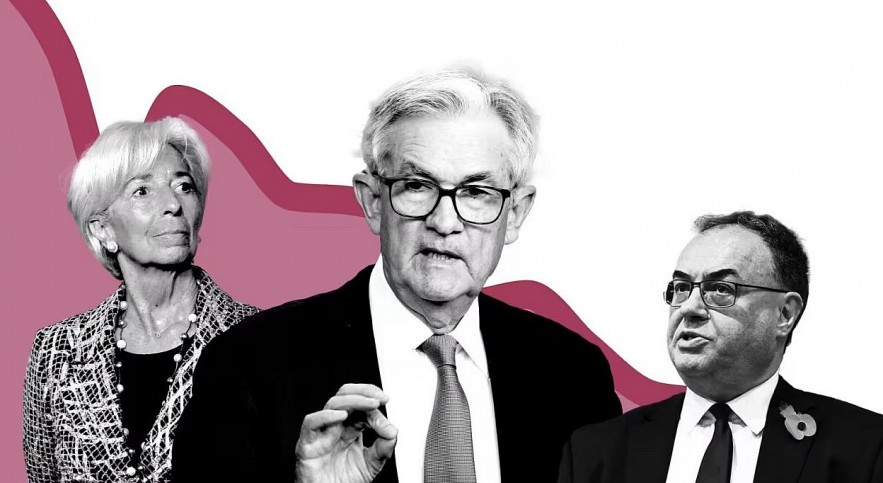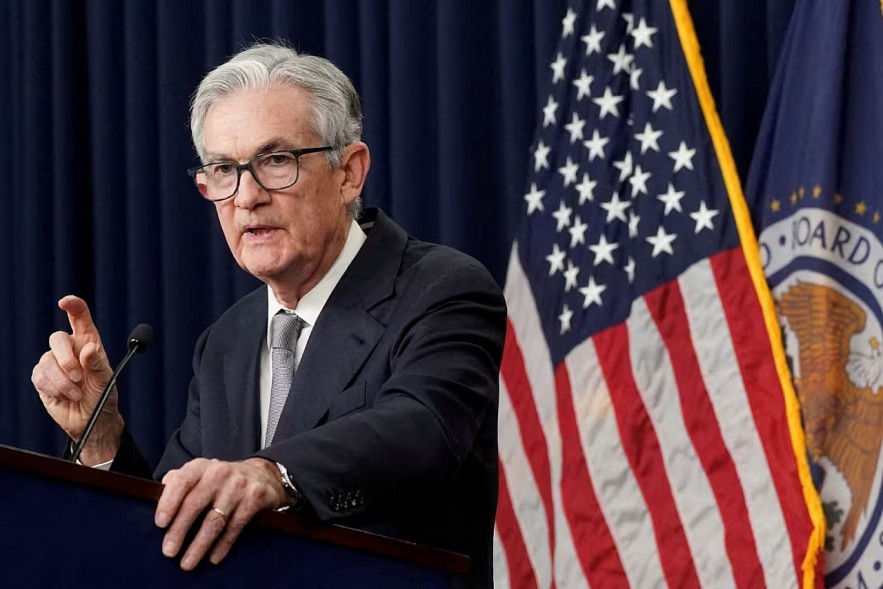(TBTCO) – Central banks are being accused of reacting too slowly to signs that the inflation crisis is fading. However, some policymakers say it is still too early to declare victory in the fight against inflation, while in the US, there is a risk that recent rapid growth could cause inflation in the United States. level is too high.
 |
| The sharp decline in inflation has investors worried that acting too slowly by central banks could harm an already weak economy. Photo: FT |
Falling inflation masks “last mile” obstacles
Some policymakers have warned that if they wait too long to cut interest rates, central banks could harm weakening economies, with the euro zone already seeing stagnant growth. all year, or cause difficulties for heavily indebted governments like Italy.
The European Central Bank (ECB) has been at the center of this debate over the past week after euro zone inflation fell to 2.4%, the lowest since July 2021, causing a rise in The price is close to the bank’s 2% target.
|
Dirk Schumacher – a former ECB economist working for French bank Natixis, said inflation in the Euro area is on track to reach 2% next spring. But policymakers’ fears of underestimating inflation again mean that “it will take a little longer to reach a broad enough consensus across the board for a cut.” ”. Schumacher predicts that the ECB will cut interest rates in June 2024 and then cut interest rates by 1/4 point at each meeting next year. |
Similar debates are taking place in the US and UK, even as inflation rates there have yet to fall to low levels. Innes McFee, global chief economist at Oxford Economics, said: “The question is which major central bank is at risk of making policy mistakes here and it seems to me most likely to be the ECB, because Inflation will decrease rapidly. They have every incentive to talk tough, but actions will have to change.”
Investors reacted to lower-than-expected euro zone inflation data for the third straight month this week by betting on how soon the ECB will start cutting interest rates; many economists now expect this to happen in the first half of next year.
Bank of Italy Governor Fabio Panetta, who joined the ECB last month, hinted this week that interest rates may need to be cut soon “to avoid unnecessary damage to economic activity”. economy and risks to financial stability”.
The government bond market recovered following comments from Bank of France Governor François Villeroy de Galhau, with investors betting on the ECB to cut interest rates in the first few months of next year. “The question of cuts may arise when that time comes in 2024, but not now: when a remedy is effective, you have to be patient during that time,” he said.
The Fed is concerned about misjudging the inflation trajectory
However, other rate-setters are protesting. German Central Bank boss Joachim Nagel said this week’s “encouraging” drop in inflation was not enough to rule out the possibility that borrowing costs could rise even further. He also warned that “it is too early to think about the possibility of reducing the basic interest rate”.
 |
| “We stand ready to tighten policy further if that becomes appropriate,” Fed Chairman Jay Powell said. Photo: Kevin Lamarque/Reuters |
That argument received support from the OECD this week, when chief economist Clare Lombardelli said that the ECB and the Bank of England (BoE) will not be able to reduce borrowing costs until 2025 due to inflation. persistent basic inflation due to wage pressure.
Central banks are also well aware that a backdrop of slowing demand, rising unemployment and continuing pain for mortgage holders will put political pressure on to cut interest rates. capacity. That is especially the case as the UK enters an election year.
| “It would be premature to confidently conclude that we have reached a sufficiently restrictive stance or to speculate on when policy might be eased. We are ready to tighten policy further if that is appropriate,” Mr. Jay Powell – Chairman of the FED, said on December 1, before the last policy meeting of the year in mid-December. |
BoE Chief Economist Huw Pill said falling consumer prices could create a false impression that the threat of inflation has passed. The challenge for policymakers, he said, is to ensure there is enough “persistence” in tightening monetary policy at a time when there will be “a lot of pressure on job growth and activity.” weaker as well as falling headline inflation, to declare victory and move on.”
In the US, where growth remains much stronger than in Europe, the Federal Reserve has barely wavered in its view that the rate-hike cycle may not be over and those expecting support in the form of cuts will require patience.
This hesitation reflects the Fed’s desire to protect its credibility by avoiding having to reverse course if price pressures remain high, a danger that San Francisco Fed President Mary Daly has Emphasis on November.
Ian Shepherdson, chief economist at Pantheon Economics, said another reason for the Fed’s “persistent hawkishness” is concerns about again misjudging the inflation trajectory, which has been widely criticized. because it is not anticipated that prices will increase after the pandemic. But with economic activity slowing, labor demand weakening and wage growth slowing, Shepherdson said the Fed is now trying a different kind of forecast failure — underestimating the pace of deflation.
“The pressure will increase over the next few months, which is why I maintain my forecast for a rate cut in March,” Shepherdson said. Next year, he expects the Fed to cut policy interest rates from 5.25 to 5.5% to 1.5 percentage points and another 1.25 percentage points in 2025.
There is still a bumpy road ahead
However, some policymakers say it is still too early to declare victory in the fight against inflation, while in the US, there is a risk that recent rapid growth could cause inflation in the United States. level is too high.
 |
| Inflation has slowed in most major economies. |
William English, former director of the Fed’s monetary department, said that in this scenario, the Fed would not hesitate to keep interest rates high even if political policies increase before next year’s presidential election. . “That’s the whole purpose of having an independent central bank and they really don’t want to jeopardize that,” he said.
ECB President Christine Lagarde this week warned that inflation in the euro zone could rebound in December as government subsidies, which have kept energy prices low, are removed. In the euro zone, much of the debate now revolves around core inflation, which strips out volatile food and energy prices.
Economists said annual calculations of core inflation over the past three months showed it had fallen to the ECB’s target level. But others point to one-off factors that have pulled inflation down – such as falling package holiday prices – and argue that rapid wage growth will keep inflation soaring next year.
“Public pressure on the ECB will increase, especially from highly indebted member states,” said Jörg Krämer, chief economist at Germany’s Commerzbank. However, the ECB should resist pressure,” he said, predicting that core inflation in the euro area will stabilize at around 3% next year.